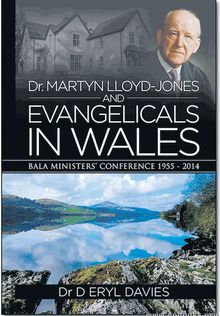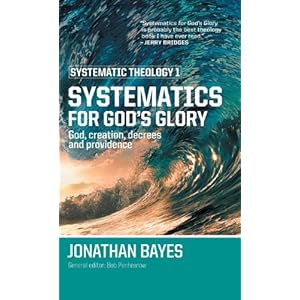A Biblical Case for Natural Law by David Van Drunen
Acton Institute, Kindle Edition.
I very much appreciated the author's Living in God's Two Kingdoms, and thought I'd have quick look at this brief monograph on natural law. In the work just referenced Van Drunen makes the point that in the 'common kingdom' the believer lives and works alongside the non-believer, both being subject to the same ethical rules. A Christian plumber is as obliged to fit a central heating system that is safe, economical and does not leak as his non-Christian colleague. That's fine when it comes to plumbing and the likes, but to what shared moral code may believer and non-believer appeal when it comes to ethical concerns more generally? According to Van Drunen, that's where natural law comes into its own.
He makes the case that natural law is the revelation of the righteousness of God to and in his human image bearers. Even fallen human beings have a sense of right and wrong. Paul condemns certain sins as 'against nature' and charges sinners with willful rebellion against what they know to be right, Romans 1:18, 19, 26, 27, 32. See also Romans 2:14-15, which Van Drunen takes as evidence that although Gentiles could not be judged for breaking the Ten Commandments, of which they had not heard, they would nevertheless be judged according to the standards of natural law to which their consciences bore witness.
After devoting a chapter to Natural Law and the Two Kingdoms Doctrine, Van Drunen discusses how natural law applies in the Civil Kingdom and the Spiritual Kingdom. He discerns three main elements of natural law in Scripture that apply to all people in the civil realm regardless of their faith position, 'things that should not be done', the 'fear of God' (see Genesis 20), and 'a common humanity' (see Job 31:13-15, Amos 1).
As far as the spiritual kingdom is concerned, the writer argues that as the redemption involves the renewal of the image of God, a key component in natural law, that the "present, earthly existence of the spiritual kingdom cannot be at odds with that good creation and its natural law; it far transcends them." (VanDrunen, David (2012-03-20). A Biblical Case for Natural Law (Kindle Locations 858-859). Acton Institute. Kindle Edition). Scripture does not set aside natural law in the ethical life of the spiritual kingdom. Old Testament wisdom literature incorporates the insights of non-Israelite proverbial sayings. Paul's 'household codes' in Ephesians 5-6 and Colossians 3-4 reflect Greco-Roman cultural norms, even as he frames his teaching in a distinctively Christian way. He wanted Christians to be mindful of the moral expectations of their non-Christian neighbours, see 1 Thessalonians 4:12, 1 Timothy 3:7 for example. And so Van Drunen concludes,
As long as the church is a pilgrim in the present age, believers must conduct themselves in the church and in the world according to the nature of things and with critical yet appreciative appropriation of the world’s cultural achievements. (VanDrunen, David (2012-03-20). A Biblical Case for Natural Law (Kindle Locations 1001-1003). Acton Institute. Kindle Edition).
It would be difficult to gainsay the basis thesis of this monograph, namely that natural law has biblical sanction and that it has applications both in the civil and spiritual realms. I also agree with the writer's 'two kingdoms' stance. But reading reading this work raised a number of questions for me:
- What happens when a culture becomes so corrupted that 'things that should not be done' are often praised to the heavens, where a sense of 'common humanity' is eroded by racism, and there is 'no fear of God before their eyes'? A culture's sense of what is 'natural' may need to be challenged and corrected in the light of God's self-revelation in Holy Scripture.
- Which leads to another question; What is the relationship between the the cultural impact of biblical teaching and natural law? It was once thought that it was entirely 'natural' for white people to enslave black people. It took a sustained application of biblical norms to western culture to overturn that view so that nowadays slavery is viewed with abhorrence as a most unnatural infringement of human liberty and dignity.
- How may a convincing case be made for natural law as a moral norm in a postmodern setting, where moral norms are viewed with suspicion and what may be viewed as 'natural' is fluid and subjective? Witness the widespread approval of same sex marriage in western society.
- To what extent may the church appeal directly to the ethical norms of Scripture in its public theology? Believers may not be able to throw proof texts at every political policy and cultural development. There is no 'Christian view' of politics, economics, or plumbing. But does that mean that biblical principles on matters such as marriage, the unique dignity of human life and so on have no place in public discourse as biblical principles because only natural law applies in the civil kingdom? (See Dan Strange, Not Ashamed! The Sufficiency of Scripture for Public Theology.
- In terms of Reformed theology, the Westminster Confession teaches that the civil laws of Old Testament Israel should not to be applied as they are in the civil realm today, as under the New Testament there is a distinction between church and state, "To them also, as a body politic, He gave sundry judicial laws, which expired together with the State of that people; not obliging under any now, further than the general equity thereof may require." (WCF 19:4). While the confession acknowledges 'the light of nature' (1:1), it nevertheless allows that the 'general equity' of Old Testament teaching on civil matters does have enduring relevance for that realm under the New Testament, thus emphasising the applicability of biblical principles in the public square. How does Van Drunen's thesis harmonise with the stance taken by the confession?
It's no doubt a bit much to expect the writer to address these questions in a brief monograph, but I'd be interested in what he had to say by way of response. Maybe I need to read his larger work, Natural Law and the Two Kingdoms: A Study in the Development of Reformed Social Thought? Of the making of many books there is no end...





















